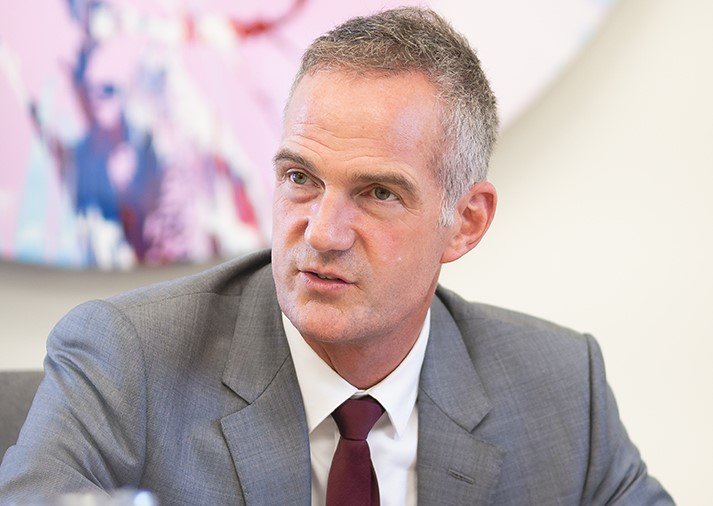Britain’s new Business Secretary, Peter Kyle, says artificial intelligence and smarter regulation will form the backbone of the country’s next economic revival — one powered more by innovation than austerity.
Standing before a packed audience of business leaders and technologists at the UKAI Conference in Sussex, Kyle struck a confident tone. Britain, he said, must “innovate its way out of crisis,” not fear change or overregulate it.
A New Face with an Old Ambition
In one of his first big speeches since joining the Cabinet, Kyle sounded less like a bureaucrat and more like a start-up founder pitching a bold turnaround plan.

He even reached for Silicon Valley metaphors. “Look at Apple when they re-hired Steve Jobs,” he said. “They were 90 days from insolvency — and he didn’t sit down and say what they couldn’t do. He threw everything at it.”
That’s the approach, Kyle told the crowd, Britain needs right now.
The comparison landed well with his audience — over 200 tech founders, academics, and investors who had gathered to hear how the new government planned to use AI to lift productivity and job creation.
And it’s clear he’s betting heavily on technology as both an economic and political tool.
“AI,” Kyle said, “is not a risk to manage, it’s an opportunity to seize.”
From Red Tape to Growth Tape
Kyle promised to trim regulation that stifles small and medium-sized businesses, a message that drew applause.
He noted that R&D investment has already risen by 11% since Labour took power — a figure he framed as proof that confidence is returning.
But he wants more — and faster.
To do that, he said the government will expand innovation funding through new partnerships between universities, start-ups, and private firms.
“The UK has world-class researchers, entrepreneurs, and engineers,” he said. “Our job is to make sure that regulation works for them — not against them.”
A senior Treasury official at the event described the speech as “a clear signal that industrial strategy is back,” though one that aims to blend growth with guardrails instead of handouts.
Industry Backs the Vision — with Caveats
Many business leaders in the room were quick to voice their support.
Kenny MacAulay, CEO of Acting Office, said Kyle’s focus was “exactly what businesses want to hear.”
He called AI and deregulation “engines of development” that could, if done right, create jobs and spread prosperity.
-
“With financial services playing such a crucial role in driving UK growth,” MacAulay said, “it’s reassuring to hear the Secretary of State endorse AI and technology as the future.”
Lee Beard, a national security specialist at Check Point Software, said that while AI is a “powerful catalyst,” it also introduces vulnerabilities.
Beard urged the government to weave cybersecurity into every layer of the AI agenda. “Cyber resilience,” he said, “shouldn’t be a brake on progress — it’s the foundation of safe, sustainable innovation.”
The Balancing Act of AI Policy
Kyle didn’t shy away from those warnings.
He acknowledged that as AI adoption grows, so does the risk of misuse — from data privacy breaches to disinformation campaigns.
He promised that digital safety and ethical standards would evolve “in parallel” with innovation.
At one point, he described AI governance as a “moving target,” saying it was impossible to freeze rules while the technology itself keeps changing.
That’s why, he added, regulation should be “dynamic, transparent, and co-written with industry.”
One government aide said the department’s new AI unit, which will work with the Alan Turing Institute and several UK universities, is tasked with drafting “living policy” — a framework updated in real time as technology advances.
Why Businesses Are Watching Closely
For many British firms, this moment feels pivotal.
After years of sluggish growth and regulatory fatigue, the promise of a lighter, AI-driven approach has injected a rare sense of optimism.
But it’s also a test. The government will need to show it can speed up approvals, modernize procurement, and actually deliver on the promise of AI productivity.
Some investors remain skeptical. “The words are right,” said a London venture capitalist after the conference, “but execution is everything. The UK can’t just talk about innovation — it has to fund and protect it.”
The U.S. Inflation Reduction Act and EU AI Act have both set global benchmarks for how governments can blend growth and safety. Britain’s challenge is to stay relevant while carving its own regulatory niche.
| Region | AI Investment (2024 est.) | Regulation Focus | Growth Outlook |
|---|---|---|---|
| United Kingdom | £15.2 billion | Flexible, pro-innovation | Moderate to strong |
| European Union | €30 billion | Strict oversight & ethics | Slower but stable |
| United States | $70 billion | Industry-led innovation | High growth potential |
The table above, shared by the UKAI Conference, highlights the global race Kyle is stepping into. Britain’s pitch: speed and pragmatism.
A Defining Economic Moment
What makes Kyle’s message resonate is its mix of urgency and optimism.
He’s not promising miracles — just momentum.
And that, after years of policy drift, might be enough to get boardrooms and labs buzzing again.
The coming months will reveal whether his strategy turns rhetoric into reality.
For now, though, his message is clear: Britain’s economic revival will be coded in AI — and written by those who dare to experiment.








